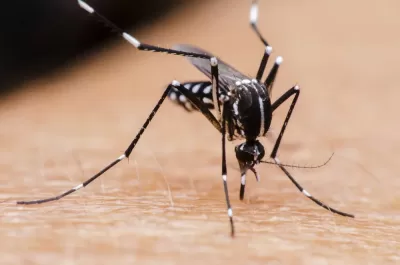Symptoms of Ross River Fever
In the past year or two there has been more media coverage and public awareness in Australia regarding the Ross River Virus. But what exactly is it and who can get infected?
Ross River Fever is an illness caused by a type of virus called an “arbovirus”. It is most common in summer and autumn. It’s spread by mosquitoes that bite an infected animal, and then bite a human (you can’t catch it from contact with an infected person). Many people who are infected with Ross River Virus don’t know they have it- they feel well and never develop symptoms. However, others may experience symptoms 7-10 days after being bitten.
So what are the symptoms of Ross River Fever?
- Flu-like symptoms such as fevers, chills, headaches, muscle and joint aches.
- Joint swelling and stiffness which may be more noticeable in the morning.
- A general feeling of unwellness, tiredness or weakness
- A rash on the trunk and limbs, which usually lasts 7 to 10 days.
How long does it take to get better?
Most people will feel better after around a week. But some may feel tired, achey and out of sorts for a few weeks or even months. Of course, tiredness and aches can signify quite a number of different illness, so it’s important to discuss your concerns with a doctor.
How can I prevent Ross River Virus?
Avoiding mosquito bites is the best protection, particularly in areas of Australia where infection rates are higher, such as rural New South Wales. However, outbreaks can happen anywhere if the weather is favourable for mosquitoes to breed. So, the usual advice applies- cover your arms and legs when outdoors in the evenings, and wear insect repellent on exposed skin. The most effective mosquito repellents contain Diethyl Toluamide (DEET) or Picaridin. Products containing oil of lemon eucalyptus (OLE, also known as Extract of Lemon Eucalyptus) or para menthane diol (PMD) are also effective. Insect repellent should be applied after sunscreen. Also, DEET-containing repellents may reduce the sun protection factor (SPF) of sunscreens so you may need to re-apply your sunscreen more often. Avoiding mosquito bites will also help protect against less common viruses such as Barmah Forest Virus and Murray Valley Encephalitis.

How is Ross River Fever diagnosed, and is there a vaccine or a cure?
It’s diagnosed by having a blood test which a GP can arrange. At this point, there is no vaccine. Nor is there any specific treatment aside from rest and painkillers. If you are concerned you might be infected by the Ross River Virus, you should discuss your concerns with your GP.
Getting a Mental Health Care Plan in Australia: Your Guide
Getting a Mental Health Care Plan in Australia: Your Guide Mental health matters—and if you’re feeling overwhelmed, anxious, or down, a mental health care plan can help. But what is it, and how do [...]
UTI Symptoms and Treatment: What You Need to Know
UTI Symptoms and Treatment: What You Need to Know Urinary Tract Infections (UTIs) are common, uncomfortable, and often disruptive. But what exactly are the signs to watch for, and how can you get relief [...]
Free Mental Health Care Plan Online | Bulk-Billed by Qoctor
Free Mental Health Care Plan Online | Bulk-Billed by Qoctor Discover how to get a free, bulk-billed Mental Health Care Plan (MHCP) in Australia through Qoctor's telehealth service. Accessing [...]




